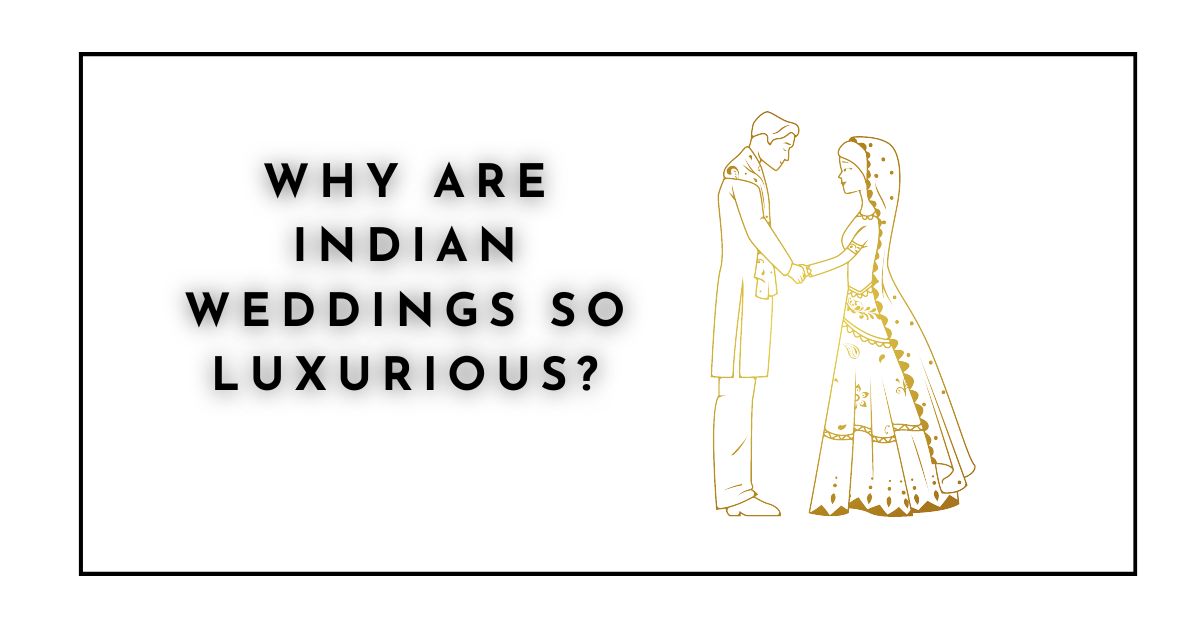Indian weddings are opulent occasions with an abundance of food to entice the palate, music filling the air. The wedding ceremony is preceded by a number of events and ceremonies, for which planning begins months in advance. A wedding in India is nothing short of a huge event—from inviting guests, shopping, hiring a location, choosing the meal, and preparing the entire wedding week. The family are under a great deal of stress in addition to the exhausted bride and groom. Unfortunately, marriages have stopped being a celebration of a partnership and have instead turned into a status symbol. And it costs us money to have extravagant weddings.
Every wedding in India reflects the culture of the nation, so attending one is like traveling to a different area of it. From traditional food to clothing to ceremonies, you can enjoy everything at an Indian wedding extravaganza. It’s a lot of fun since you’ll be treated like a distinguished guest with convenient transportation, pre-arranged lodging, and an amazing buffet dinner including the greatest Indian food. Overall, attending an Indian wedding will provide you the chance to encounter some of the warmest hospitality and gain a deep understanding of the country’s culture.
Indian weddings are particularly distinctive since there are so many ceremonies involved. You are sure to genuinely enjoy a number of fascinating and unique customs and rituals when attending an Indian wedding.
It is inevitable that Indian weddings now place a significant emphasis on wedding attire. The people’s attention is drawn to the bride and groom’s vibrantly colored attire. Don’t forget the jewelry necessary to highlight the families’ socioeconomic standing. It’s fun to witness when the bridesmaids and close family members wear matching outfits for themed weddings. Weddings are not a one- or two-day event. The festivities begin with an engagement ceremony and continue with a Mehndi or Haldi ceremony, a Sangeet, and a wedding reception! Every celebration revolves around bringing in more people, guests, and food. Additionally, the marriage bureaus organize spiritual celebrations such as temple visits and priestly services.
Hosts make the best regional delicacies as well as those that are popular in India during the wedding season in order to give their guests an unparalleled culinary experience. After all, food is an essential part of every Indian wedding, and after attending one. Your options vary from savory appetizers to a variety of meals for the main course, followed by a round of sweets that will also be available in abundance. So it is not a stretch to suggest that an Indian wedding is fundamentally a culinary tour.
The Indian wedding will serve as evidence that you must be well-versed in Indian culture’s love of color. If you are traveling from a western country where you are used to white weddings, let me assure you that an Indian wedding will be a true visual feast for you. Men and ladies will be dressed in hues you may not even be familiar with, but when they are all worn together, they all look stunning. You’ll also fall in love with the jewelry because there is a piece for practically every area of the body, including the head, forehead, ears, neck, waist, feet, and arms. You’ll also appreciate its elegance of it.
The lengthy ceremonies at Indian weddings are part of their allure; often lasting for months. The rituals that take place before the wedding have their own attraction since they act as mini-celebrations that keep everyone pleased, even if the final three days of the wedding are arguably the most exciting. The time that families and friends get to spend together during the lengthy celebration is its best aspect. India, like other nations today, has come to accept the idea of the nuclear family, thus now the only reason to visit with family is to attend a wedding or a festival. As a result, extended festivities allow loved ones extra time to be together and rekindle their relationship.
In business communities, Indian weddings are lavish affairs. This is mostly because they take advantage of the extra time off to expand and pamper their network. Invite the powerful and present “gifts” in a formal manner. The chance is taken to present their network to the younger generation. This is an informal “extended” business. They know how to leverage the costs and make up for them, since they are businesspeople.


